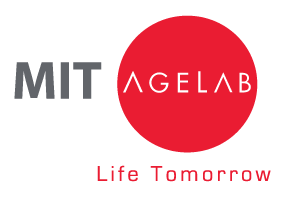MIT AgeLab has identified three simple questions you should ask yourself to assess how prepared you are to live well in retirement. What do these questions have to do with retirement planning? A lot more than you may think. They actually uncover important factors that will determine your future quality of life and serve as a starting point for planning a satisfying retirement.
When it comes to retirement planning, we’re inclined to focus on accumulating assets and making sure we spend our money wisely. But while our biggest fear may be outliving our wealth, there’s an even greater risk of:
- Losing our independence due to ailing health;
- Being unable to access the big and small things that make us happy, and
- Facing a decline in the number of friends in our social network.
Planning for these contingencies is an integral part of preparing to live longer, better. Your financial professional should integrate these issues into a comprehensive planning discussion to make an ambiguous retirement future—often decades away—more tangible to you. This can help you commit to preparing for your retirement today.

Who Will Change My Light bulbs?
This sounds mundane and simple enough—but is it?
If your father is 85—even if he is in good shape—do you want him on a ladder changing light bulbs? How about your mom living alone and maintaining her home well into her eighth and ninth decade? Given that the baby boomers had fewer children and have the highest divorce rates in history, help at home may be in short supply. Now think about your own retirement years. Changing light bulbs is more than an issue of long-term home maintenance.
It is a question that asks, “Do I have a plan of how to maintain my home?” When younger, most of us take for granted our ability to do daily house cleaning, maintenance and basic repairs—even home modifications. However, identifying the costs as well as the trusted service providers necessary to maintain our home may be as critical to aging independently as the health of our retirement savings.
How Will I Get an Ice Cream Cone?
Imagine it is a hot summer night—a perfect night for getting an ice cream cone... preferably chocolate. Quality of life is about being able to easily and routinely access those little experiences that bring a smile.
While getting an ice cream cone when you want it is not a financial strain for most, the capacity to have that cone on demand does raise questions such as, “Do I have adequate transportation to go where I want when I want?”
If driving is no longer possible, “Are there seamless alternatives that enable me to make the trips that I want—not just those I need?” Moreover, “Will I age in a community where there are ample activities and people to keep me engaged, active, and having fun?”
Who Will I Have Lunch With?
Lunch is more than a meal—it’s an occasion. Who you have lunch with may be a good indicator of your social network. This is not the social network of “friends” you have online, but friends you see on a regular basis—people who help reinforce a healthy and active lifestyle, and who you and your significant other can depend upon.
Even with adequate finances, living alone without a robust circle of social support can threaten healthy aging. In the United States today, nearly twice as many women over 75 live alone compared to men over 75.1 Consequently, planning where, and with whom to retire may be as important as how much it will cost. For example, a home in the mountains may be alluring as you approach retirement, but it may lead to an inadequate network of friends, or complete isolation during old age.
The baby boomers are facing a different retirement than their parents. They’re more likely to live alone, to have fewer children, and to live in suburban and rural locations that may not provide easy access to active and livable communities.
“Retirement planning must go beyond money alone...”
Effective planning must be about more than financial security. The new face of retirement planning must go beyond money, and adopt an integrated and holistic approach to helping people like you prepare to live longer and well.
Talk to your financial professional about how the 3 questions apply to your future
Financial professionals: Discover more resources about the 3 questions
1Historical Living Arrangements of Adults, US Census Bureau, 11/21
The MIT AgeLab is not an affiliate or subsidiary of Hartford Funds.






